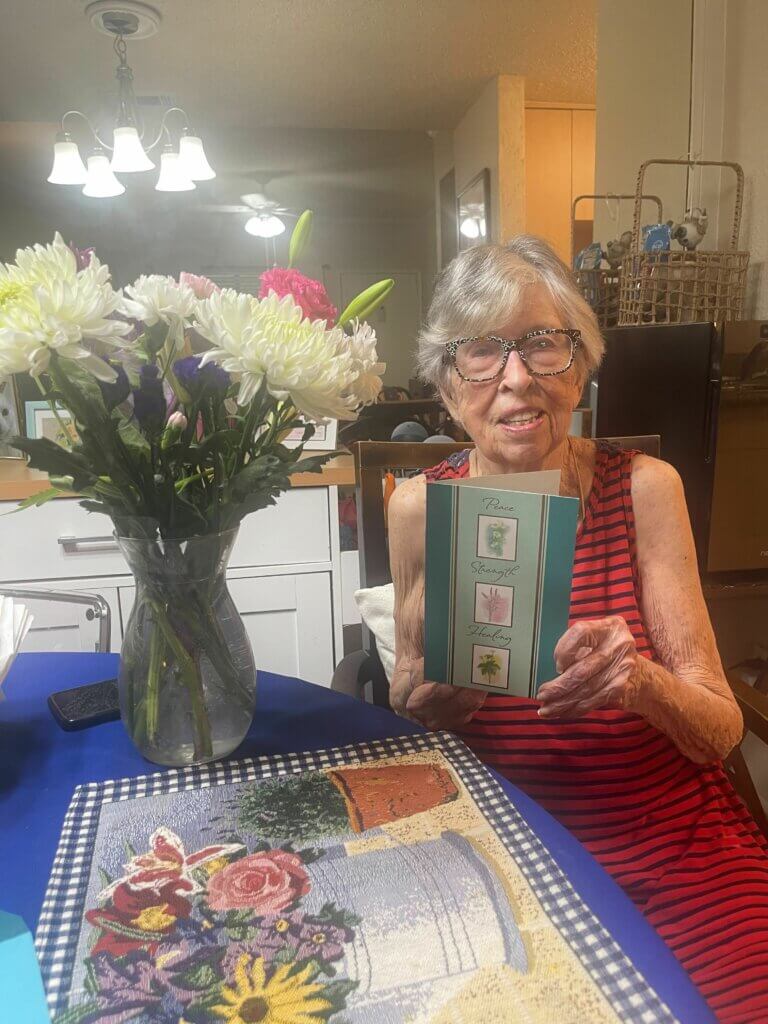Discover when it may be necessary to consider memory care for your loved one and how it can benefit them.
Recognizing the Signs of Memory Decline
Memory decline is a natural part of aging, but there are certain signs that may indicate a need for memory care for your loved one. These signs include frequent forgetfulness, difficulty completing familiar tasks, confusion or disorientation in familiar environments, changes in mood or personality, and difficulty with language or communication. If you notice any of these signs in your loved one, it may be time to consider memory care.
It’s important to keep in mind that everyone’s experience with memory decline is unique, and not all individuals will experience the same symptoms. However, if you have concerns about your loved one’s memory and cognitive abilities, it’s always best to consult with a healthcare professional who can provide a proper evaluation and diagnosis.
Discover effective strategies to make the transition to memory care smoother for your loved one.
Understanding Memory Care and its Benefits
- Specialized Long-Term Care
- Structured and Supportive Environment
- Peace of Mind for Family Members
Memory care is a specialized type of long-term care that is designed to provide support and assistance to individuals with memory-related conditions, such as Alzheimer’s disease or dementia. Memory care facilities offer a safe and secure environment where residents can receive personalized care and support from trained professionals.
One of the key benefits of memory care is that it provides a structured and supportive environment for individuals with memory decline. Memory care facilities often have specialized programs and activities that are designed to stimulate cognitive function and promote social engagement. Additionally, memory care staff are trained to handle the unique challenges that come with memory-related conditions, ensuring that residents receive the appropriate care and support they need.
Memory care also provides peace of mind for family members. Knowing that your loved one is in a safe and supportive environment can alleviate some of the stress and worry that often comes with caring for someone with memory decline. Memory care facilities also offer respite care options, allowing family caregivers to take a break and recharge while their loved one receives professional care.
Factors to Consider in Choosing Memory Care
- Location and Accessibility
- Level of Care and Services
- Cost and Financial Considerations
- Personal Visit and Interaction
When considering memory care options for your loved one, there are several important factors to take into account. One of the first things to consider is the location of the memory care facility. It’s often beneficial to choose a facility that is close to family and friends, as this can make it easier for them to visit and provide support.
Another important factor is the level of care and services provided by the memory care facility. It’s important to ensure that the facility has trained and qualified staff who specialize in memory care. Additionally, you’ll want to consider the types of amenities and activities offered by the facility, as these can greatly enhance your loved one’s quality of life.
Cost is also an important consideration when choosing memory care. Memory care facilities can vary greatly in terms of cost, so it’s important to have a clear understanding of the fees and payment options before making a decision. It’s also worth considering whether the facility accepts long-term care insurance or offers any financial assistance programs.
Lastly, it’s essential to visit the memory care facility in person and speak with staff and residents. This will give you a firsthand impression of the facility’s environment, cleanliness, and overall atmosphere. It’s important to trust your instincts and choose a facility where you feel confident that your loved one will receive the care and support they need.
Exploring Different Memory Care Options
- Standalone Memory Care Communities
- Memory Care within Assisted Living
- Home-Based Memory Care
When exploring memory care options, there are different types of facilities to consider. One option is a standalone memory care community, which is specifically designed for individuals with memory decline. These communities often have secure environments and specialized programs to meet the unique needs of residents with memory-related conditions.
Another option is memory care within an assisted living facility. Some assisted living facilities have dedicated memory care units or wings that provide additional support and care for residents with memory decline. This option can be beneficial if your loved one requires a higher level of care but still values some independence and social interaction.
Home-based memory care is another option to consider. In-home caregivers can provide personalized care and support to individuals with memory decline in the comfort of their own homes. This option can be particularly beneficial for individuals who prefer to age in place and maintain familiarity with their surroundings.
Each memory care option has its own benefits and considerations, so it’s important to thoroughly research and evaluate each option based on your loved one’s specific needs and preferences.
Preparing Your Loved One for the Transition
- Involvement of Healthcare Professionals
- Visit the Memory Care Facility
- Ongoing Support and Reassurance
Transitioning to memory care can be a challenging process for both the individual with memory decline and their family members. However, there are steps you can take to help prepare your loved one for this transition.
First and foremost, open and honest communication is key. Talk to your loved one about their memory decline and the need for memory care in a compassionate and supportive manner. Involve them in the decision-making process as much as possible, allowing them to express their concerns and preferences.
It’s also important to involve healthcare professionals in the transition process. Consult with your loved one’s primary care physician or a geriatric specialist to ensure that their medical needs are being properly addressed and that any necessary medications or treatments are in place.
Before the transition, take the time to visit the memory care facility with your loved one. This will allow them to become familiar with the environment, meet staff members, and ask any questions they may have. Consider bringing personal belongings or familiar items to help create a sense of comfort and familiarity in their new living space.
Finally, provide ongoing support and reassurance to your loved one during the transition period. Moving to a new environment can be overwhelming, so be patient and understanding as they adjust to their new surroundings. Stay involved in their care and visit regularly to maintain a connection and provide emotional support.
Reach out to us at 832-371-6600 and learn how you can ensure a smooth transition for your parents.
Home Matters Caregiving proudly serves the Houston Metro area providing care for seniors wherever they call home.












